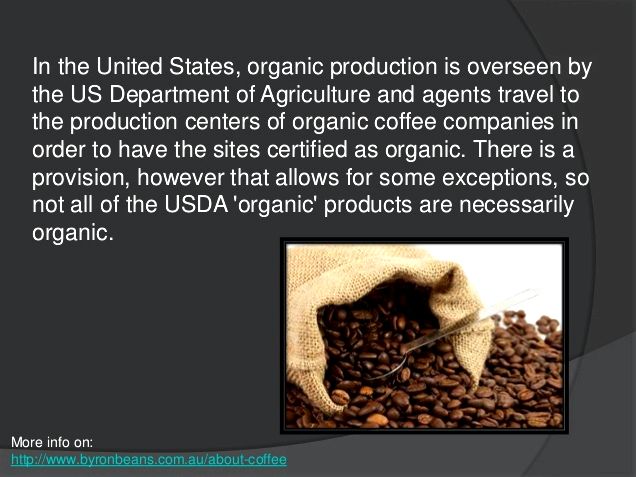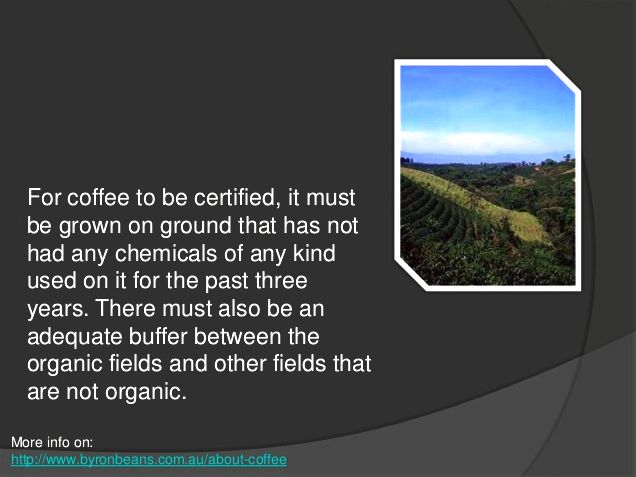
Same with organic coffee worthwhile? In the end, unlike berries or peaches, that are sprayed with pesticides after which sent straight to the customer for consumption, the particular beans remains safe and secure with a thick skin. “So the risk of the customer really getting impacted by the agrochemical in coffee is—I shouldn’t say zero, because there’s always a way for something—but it’s incredibly unlikely,” Holcomb states, “in part as this coffee is roasted at 400°F, and these chemicals which were inside would’ve been vaporized within the roasting process anyway, when there were any which were to get at you.”
Organic certification does not be certain that the organization is financially, socially, or else eco sustainable, either. Nobletree Coffee operates and owns two farms in South america where they grow coffee. “We use agrochemicals, we use pesticides when needed, we use fertilizer when needed,Inch Holcomb states. A part of that’s practical. You have to apply 2 to 3 pounds of organic fertilizer—generally a mixture of composted organic materials—to each tree to get exactly the same benefits as three ounces of the conventional fertilizer. "So it’s an infinitely more concentrated dose, however that does mean I would buy two truckloads of fertilizer instead of forty,” saving the farm labor costs and minimizing its carbon footprint. Your organic coffee may be grown without agrochemicals, however that label states nothing concerning the other production practices.
Holcomb can also be quick to notice that does not all fertilizers are created equally, and that you could begin using these fertilizers in a manner that will not harm the plants or even the workers. They make certain that that anybody who’s using the chemicals continues to be trained and wears protective equipment. "We also have bloodstream tests to make certain there aren’t any levels that will affect their own health lengthy-term,” he states.
Lengthy story short? You cannot depend around the organic label to make sure your coffee is sustainably created. The subtle variations being produced are why the best way forward that Holcomb can provide coffee lovers searching to brew sustainably sourced beans is straightforward: Know your roasters. Most consumers may not get the opportunity to satisfy their actual coffee maqui berry farmers since they’re too much away, “but whether they can become familiar with the roasters and know a few of the roasters’ core values and perhaps a few of their buying practices and just how they manage coffee, that’s really the easiest way it can be done,Inches Holcomb states. “Because individuals values carry completely with the chain,” and directly into your morning mug of coffee.
 Resourse: http://extracrispy.com/drinks/3470/
Resourse: http://extracrispy.com/drinks/3470/
